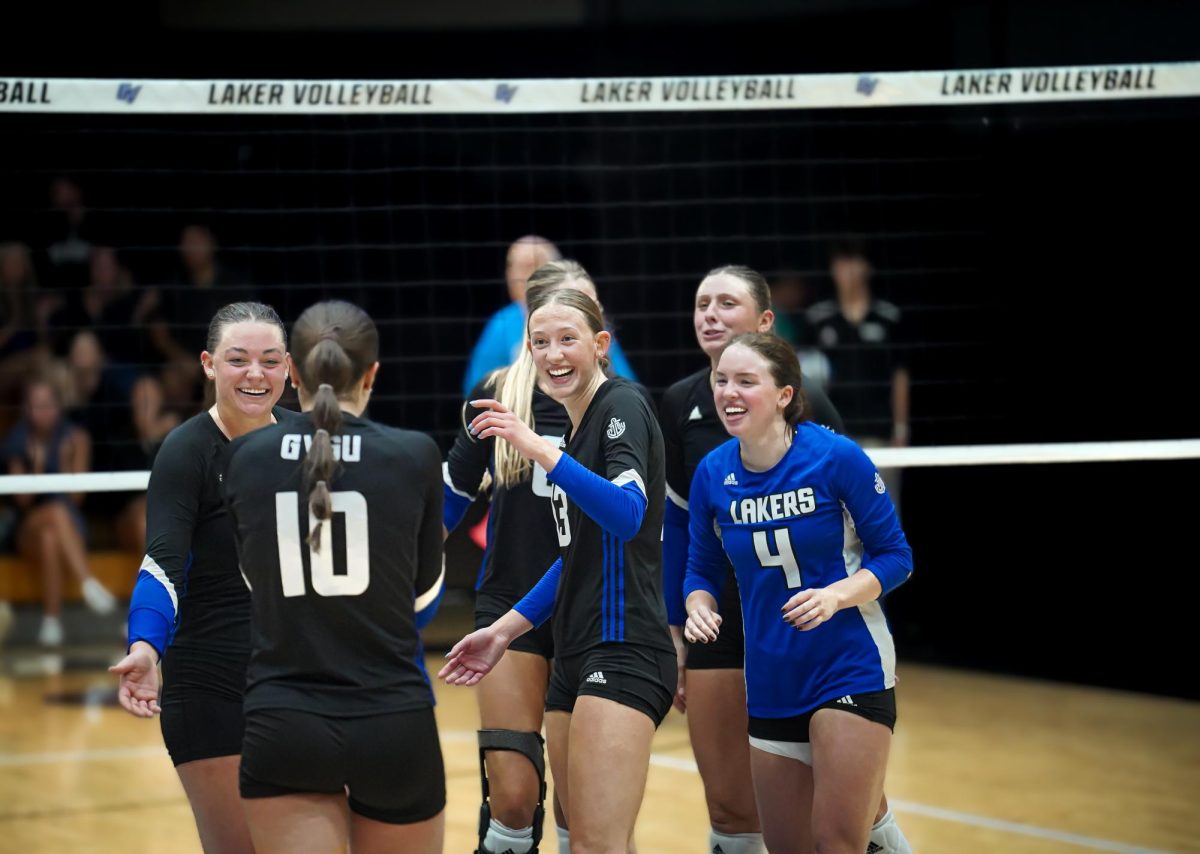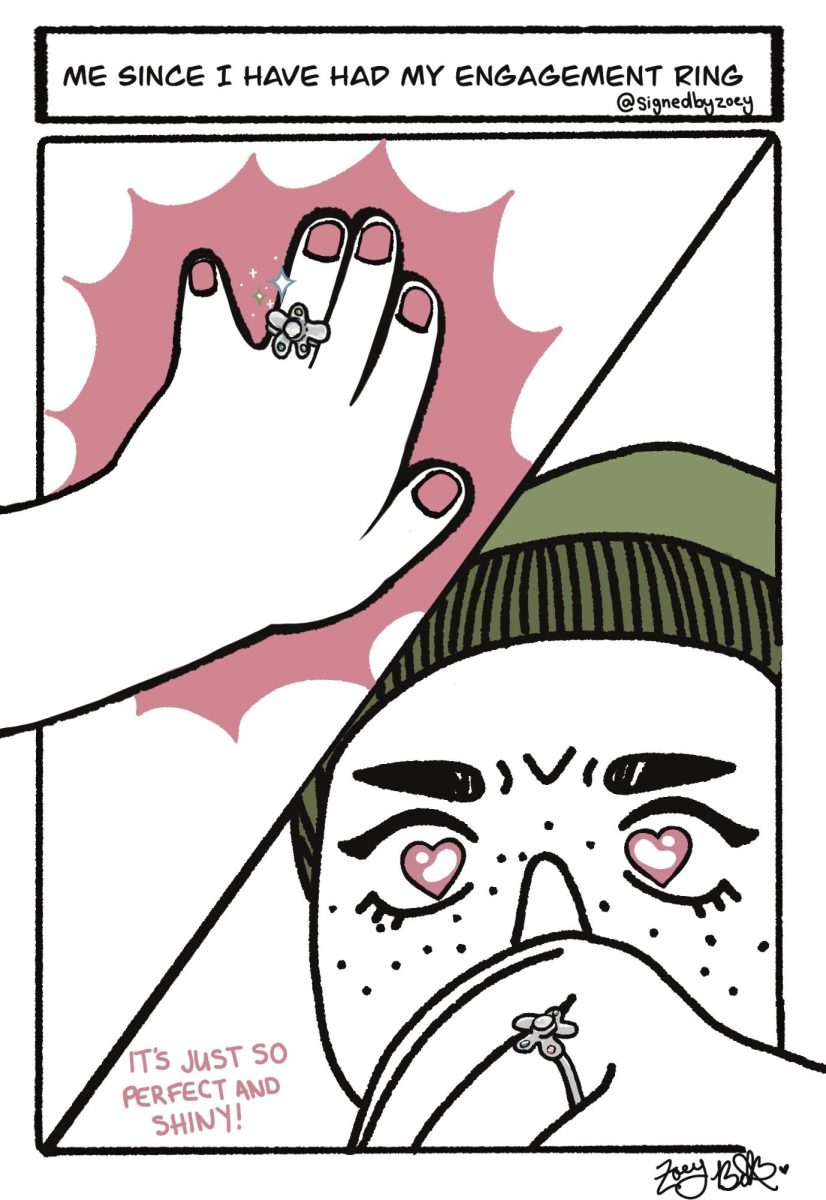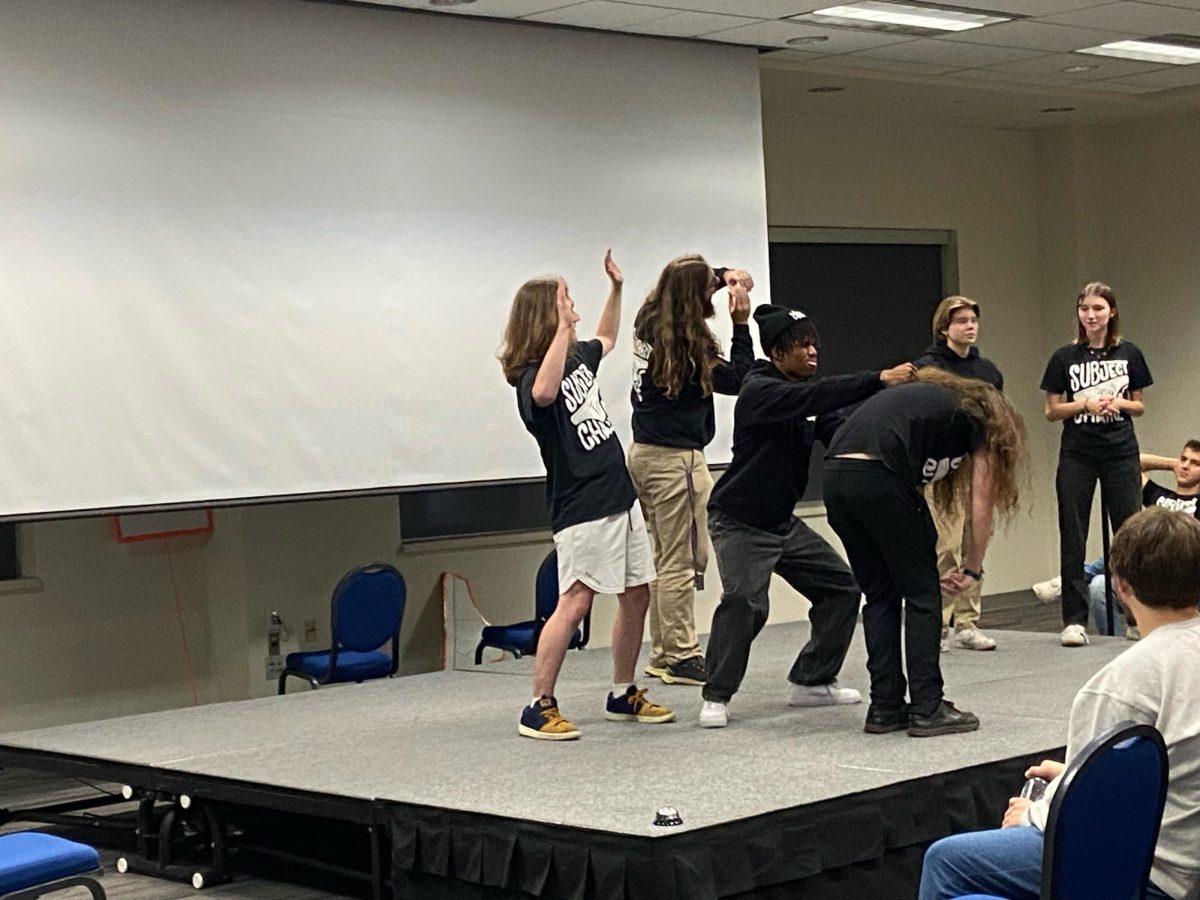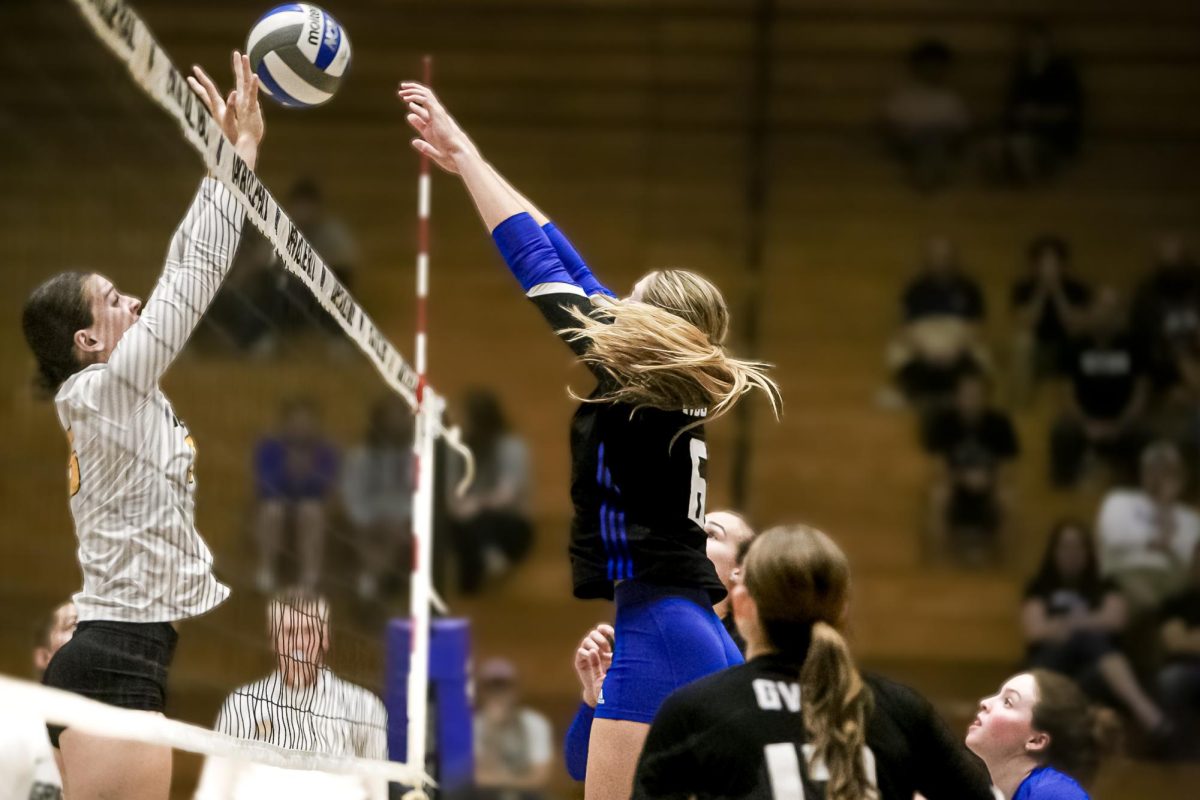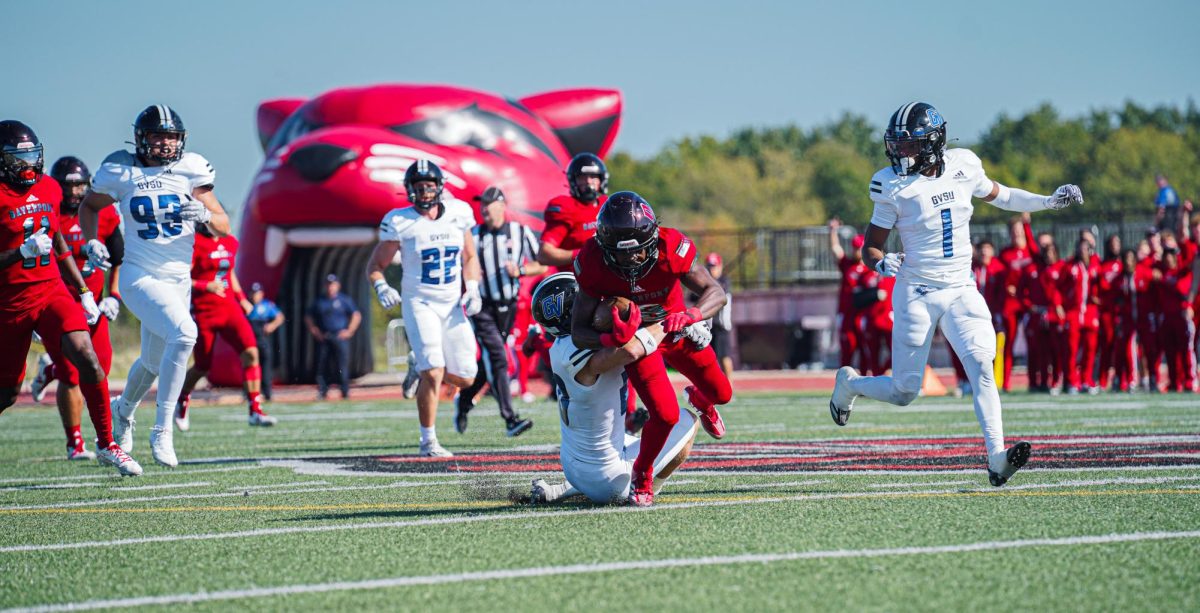Stress sets in at halfway point of semester
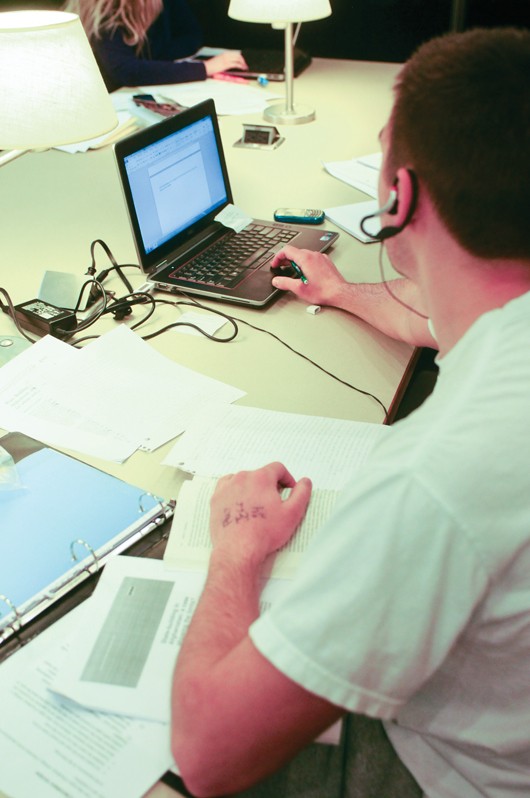
GVL / Robert Mathews Students cram last minute studying in for midterms.
Mar 1, 2012
With spring break comes the panic of midterms, but even after the dreaded tests are finished and nothing stands between you and that Caribbean cruise, the anxiety returns in a gut-wrenching realization: you have six weeks to pick up your grades.
Around this time, many students at Grand Valley State University stay logged into Blackboard to see if they passed their exams and come up with a strategy to keep up in the class. The prospect of playing catch-up and potentially getting a poor grade can be daunting and stressful, but associate psychology professor Michael Wolfe said a moderate level of stress can be educationally beneficial and motivational.
However, severe stress is often detrimental and counter-productive, Wolfe added.
“Too much stress or anxiety can hurt your ability to remember things that you’ve studied,” he said. “Your attention ends up focused on your anxiety. There’s nothing productive about worrying about other classes that you’re not currently studying for.”
The professor suggested that students who feel anxiety about their schoolwork should focus on their immediate tasks and worry about less pressing matters later.
“Take breaks if you find that you are trying to concentrate but are just focused on your anxiety,” Wolfe said. “Take your time and try not to rush things.”
GVSU Counseling Center’s Eric Klingensmith said stress can also be detrimental to one’s health.
“It takes a lot of energy to be stressed if were not doing anything to balance that out with relaxation,” Klingensmith said.
The counselor said stress can be combatted by eating and sleeping well, not procrastinating and setting time aside to relax and exercise. He also recommended that students take advantage of the counseling and academic resources available to them.
While many students choose to undergo the stress of playing catch-up, some opt to drop a course altogether. With the course drop deadline of March 9 fast approaching, a quick decision must be made.
Although there is no set formula for students to determine whether they should drop a course, they have a lot of different circumstances to consider.
“They need to look at what their GPA is and how their grade may affect or not affect their GPA depending on whether they’re failing or getting a D or getting a C,” said Joyce Van Baak, director of tutoring in the Student Academic Success Center. “There are certain guidelines that a student should look at.”
Among the things students should consider are the individual eligibility requirements for financial aid packages, as well as academic requirements for athletic and international visa programs, veterans’ benefits and graduate school applications. Students should also think about whether the course is a prerequisite and lays groundwork for further courses in a particular program.
“We typically advise them to check with all those areas and make sure they’re in compliance with all those areas,” Van Baak said.
For those students who wish to keep up with a course rather than drop it, Van Baak suggested meeting with a graduate assistant to help with study skills, requesting a tutor, visiting one of the many drop-in places on campus or even talking with the professor of the course.
“One of the first things we always recommend they do is talk to the professor,” Van Baak said. “If anybody knows how to pass a class it’s the professor. Sitting and having a frank discussion with the professor . . . can be invaluable.”
For advice on how to approach schoolwork or whether to drop a course, contact the Student Academic Success Center at 616-331-3588.



